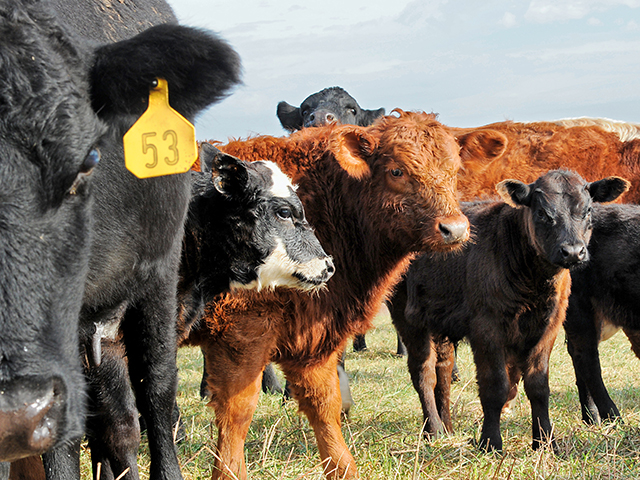Ask the Vet
Prolapse Worries - Heritable Condition May Warrant Culling
Reader: We had a heifer in labor for several hours before we found her. The calf's head was back. Our veterinarian delivered a live calf, but the heifer prolapsed her whole uterus. We cleaned it up, and she and the calf are doing fine. What are the chances of her doing this again?
Dr. McMillan: Uterine prolapse, at least in my hands, almost always occurs after a difficult birth. It is an emergency that must be handled quickly and gently. If the large artery that feeds the uterus ruptures, the cow will bleed out internally and die quickly.
That's bad news. The good news is that if the cow breeds back, she is not significantly more likely to prolapse again unless she has another difficult birth. I like to recheck these cows a few weeks after calving to make sure there is no uterine infection, and if there is, treat it.
This is different from vaginal or cervical prolapse. Those conditions most often occur before birth but can also occur after calving. They are inherited conditions and tend to recur. Those cattle should be culled and any heifers in the herd critically evaluated. I would say they have at least one strike against them as culling decisions are made.
P[L1] D[0x0] M[300x250] OOP[F] ADUNIT[] T[]
Reader: You wrote in an earlier column about chinaberry trees being toxic to cattle. This parallels an issue I have had with acorns. Three years ago, I lost some young heifers, poisoned by acorns, and in December, I lost three mature cows. My vet and county Extension agent have not seen this on other operations. Why is this so random?
Dr. McMillan: It does seem to be random. I've seen it many times over my 39 years in practice with some of my own cows foraging acorns in the fall when I rotate pastures. I've never lost any cattle to it, though. So, why sometimes, and why some operations and not others?
Let's first look at what is poisoning these animals. The toxins are tannins. Buds, young leaves and fresh acorns contain the highest levels of tannins. Levels vary with species of oak, time of year and even year to year. They damage the lining of the digestive system, leading to ulcers in the mouth, stomach and intestines. They can severely damage kidneys and blood vessels. Affected cattle often go off feed, have dark, tarry stools stand "tucked up" and have ventral edema and kidney failure. Often, the first sign of a problem is dead cattle. Treatment involves supportive care, but I have had little success if the kidneys are failing.
Some in the field of veterinary medicine and research believe if these leaves, buds and acorns make up less than 50% of the diet, cattle will be OK, making good nutrition important. Also, look to limit herd access to pastures with lots of oaks in the spring and early fall.
Dietwise, there are some things producers can do to help protect from tannins. We think hydrated lime and protein provide some protection. The following supplemental feed has been used to prevent problems: cottonseed or soybean meal (1040#), dehydrated alfalfa meal (600#), molasses (160#) and hydrated lime (200#). The first two ingredients in that formula can be tweaked, but molasses is essential to keep the hydrated lime from separating out. Cattle should be slowly adapted to this feed and need to consume about 4 pounds per day per head.
READERS TALK BACK:
Reader: I have used truck tires for years to feed round bales, and I have minimal waste. I place seven large tires on the ground with or without a ring. The cows and horses must stand and not lay on the hay this way. Herbert Legg, Caldwell, TX
Dr. McMillan: Anything that protects hay from wet or muddy ground can certainly be helpful in reducing waste. I would still encourage that a hay ring always be used. As we noted in the column, some rings are more effective than others. I have also seen tires and tarps used very successfully to protect hay when stored outside. Hay costs too much to waste.
> Please contact your veterinarian for questions pertaining to the health of your herd. Every operation is unique, and the information in this column does not pertain to all situations. This is not intended as medical advice but is purely for informational purposes.
> Write Dr. Ken McMillan at Ask The Vet, 2204 Lakeshore Dr., Suite 415, Birmingham, AL 35209, or email vet@progressivefarmer.com.
[PF_1220]
(c) Copyright 2020 DTN, LLC. All rights reserved.




